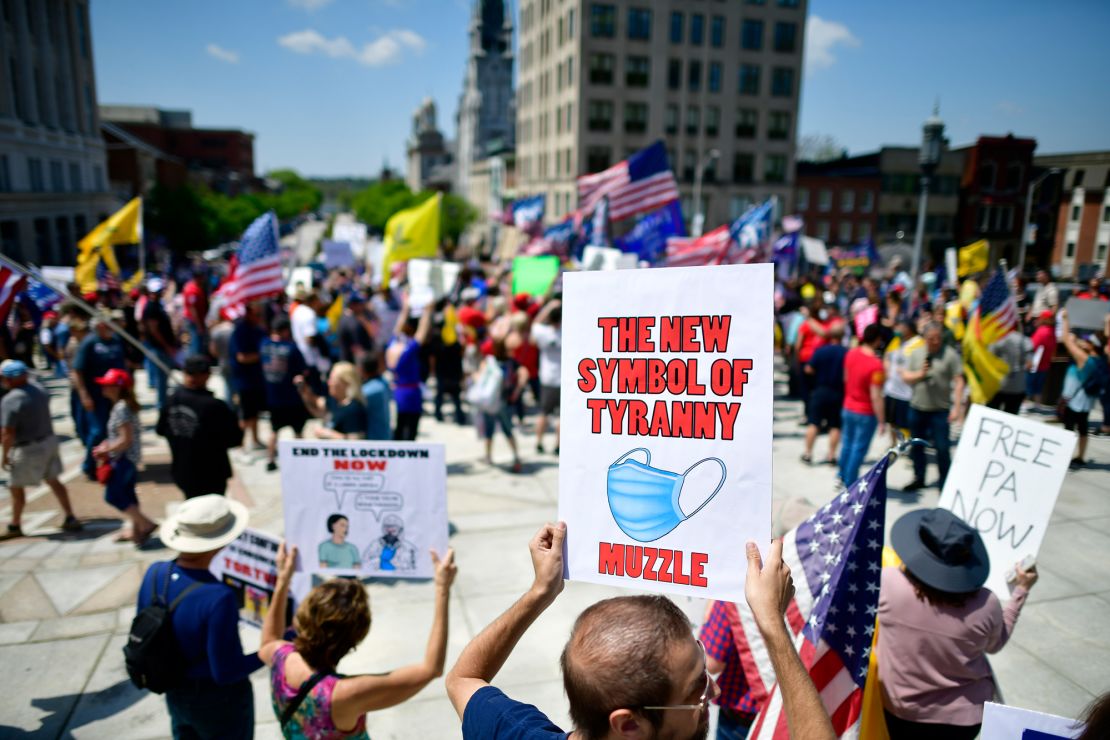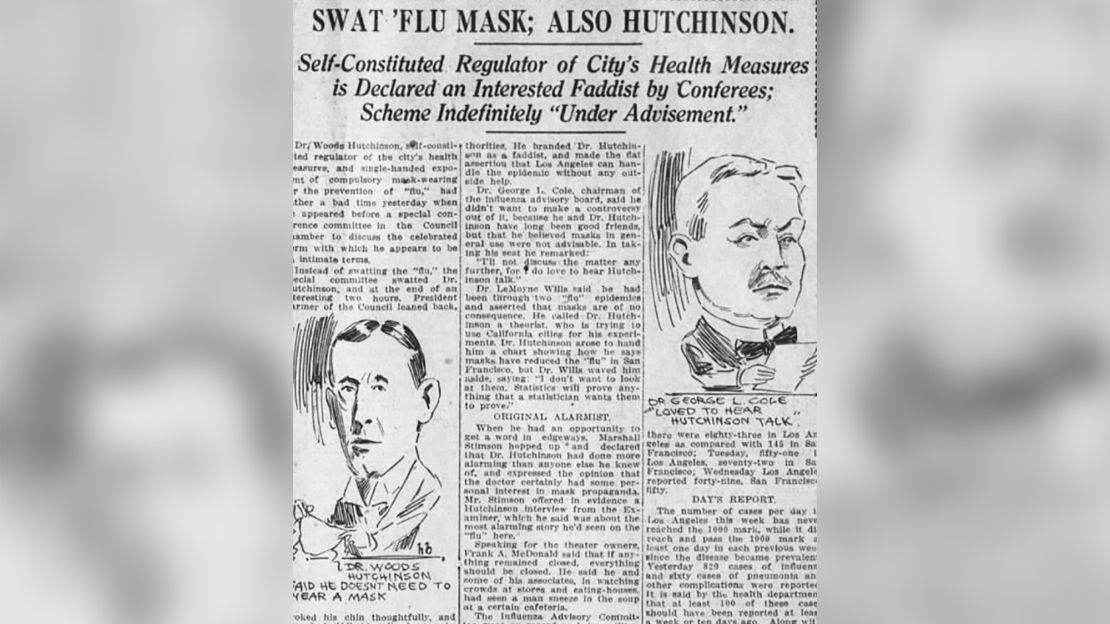Editor’s Note: This was originally published as the June 23 edition of CNN’s Meanwhile in America, the daily email about US politics for global readers. Click here to read past editions and subscribe.
America was born in rebellion and it’s a spirit that still runs deep in its character.
The perennial American struggle between government and the veneration of individual liberty is boiling to a head again: Some citizens are balking at expert guidance for them to cover their faces, in order to check the spread of the coronavirus.

If you live in a country where the balance between personal rights and collective well-being falls differently, you might consider the refusal to wear a mask to be pure selfishness. But while plenty of Americans are wearing masks, rebellion is part of the country’s political DNA. Ashley Smith from North Carolina, for example, recently burned a mask in a frying pan in a Facebook video, and told CNN sister channel HLN that mandatory mask use infringes “our freedoms.” In Arizona, where the coronavirus infection rate is spiking, Charles Gbekia said he wouldn’t wear a mask even though he’s lost family to the virus. In California, where masks have just been made mandatory, a top health official said Monday that she had received death threats over the issue.
President Donald Trump is hardly helping, with his message that masking up is intrinsically weak, liberal and un-American. Last week, he mused that Americans who wore face coverings were trying to hurt him politically.
As he often does, he is tearing at a social fault line for his own political gain. But it’s not the first time masks have become a political flashpoint – it was the same in the influenza pandemic in 1918, when Americans were told to make masks at home. Iowans back then were enraged at orders to wear masks on trolley cars. And in California, one doctor who called for the use of masks was blasted as a “faddist” and a “purveyor of mask propaganda.” The current debate also parallels past showdowns over the government sticking its nose into seat belts, smoking and guns.
The lesson of history is clear: Tell insubordinate Americans to wear a mask if you must. But if the government tells them to strap one on, there’ll be trouble.

‘PRINTED BY FOREIGN COUNTRIES’
Reeling after a weekend campaign rally with lower-than-expected turnout, President Donald Trump changed the subject Monday morning with a series of widely debunked lies about alleged voter fraud in US elections, writes CNN’s Marshall Cohen. “RIGGED 2020 ELECTION: MILLIONS OF MAIL-IN BALLOTS WILL BE PRINTED BY FOREIGN COUNTRIES, AND OTHERS. IT WILL BE THE SCANDAL OF OUR TIMES!” Trump tweeted, among other claims.
The catch: Trump’s primary allegation – that voting by mail leads to “massive fraud” – is just completely untrue. Contrary to the President’s claims, there are many more cases of eligible voters who didn’t receive their mail ballots on time, and therefore potentially were disenfranchised, than there are examples of people fraudulently casting multiple ballots, according to a CNN review of data from a half-dozen recent primaries. Officials are trying to resolve these issues before November.
It would be a “waste of paper” for foreign countries to print fraudulent ballots, according to Michael McDonald, a political science professor at the University of Florida who runs the United States Elections Project and is a leading authority on voting data and statistics. “The legally valid (ballots) printed by election officials have many safeguards to protect against fraudulent voting,” he tweeted.
Postcard from Phase Two, NYC-style
On Monday, New York City entered the second phase of its reopening plan, which means offices can now reopen, restaurants can offer terrace dining and barbers can finally start making New Yorkers presentable again.
Though hailed in theory and badly needed for many small businesses, these openings may not have a huge impact on the daily life of the city. Of the office workers who still have jobs, many are opting to work from home instead of trekking into Manhattan. And al fresco dining has already been the norm for weeks in Brooklyn, where sidewalks bustle with block-long barbecues, and dinner parties are seated bleacher-style on brownstone stoops. (The novelty of getting your hair done after more than 100 days of lockdown, however, is still a big deal.)
Oddly, it’s the parts of the city that have been anointed as lawfully open that still often feel the most shut down, in part due to social distancing requirements. Subway stations are suspiciously silent, with none of the mass shuffling and murmuring of the pre-coronavirus commuting rush. Narrow storefronts feel cavernous, as signs admonish customers to queue outside. In contrast, the forbidden waters of Rockaway Beach were full of splashing kids and adults on a recent weekend.
And as temperatures spike and police reassess their methods, illicit business seems to be accelerating – murders, burglaries and shootings in the city are rising dramatically. The soundtrack to this summer is the nightly whine and crack of banned fireworks – usually from multiple directions and with such unprecedented frequency that some local law enforcement staffers are starting to wonder if they’re being used to cover up the sounds of gunshots.
While large swathes of the city still remain painfully stalled, there’s evidence on every street corner that many New Yorkers aren’t waiting for any official all-clear.
‘She’s not allowed to write a book’
In case new books about first lady Melania Trump and by former national security adviser John Bolton aren’t enough, there’s another potential paperback bombshell on the way this summer: Mary Trump, the President’s niece, has penned a book described as a “revelatory, authoritative portrait of Donald J. Trump and the toxic family that made him.” The book is set to be released on July 28, according to the book’s publisher, Simon & Schuster.
“She’s not allowed to write a book,” Trump told Axios in an interview Friday. “You know, when we settled with her and her brother, who I do have a good relationship with — she’s got a brother, Fred, who I do have a good relationship with, but when we settled, she has a total … signed a nondisclosure.”




















